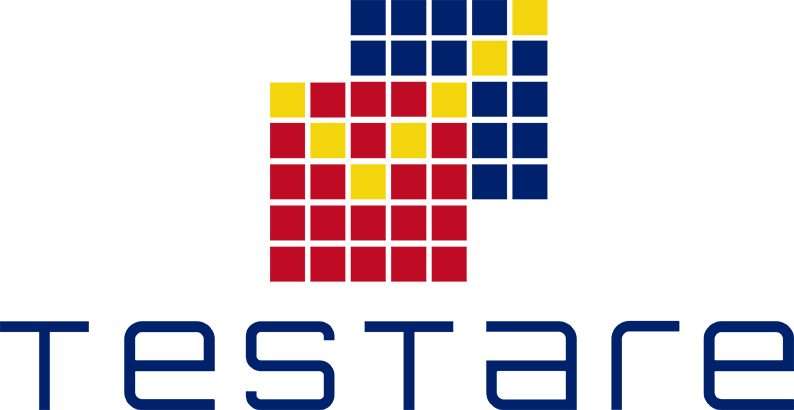Motivation behind TESTARE
Hybrid organic-inorganic perovskite-based photovoltaics (PV) have attracted significant attention in the last years due to their high efficiencies rivalling those of established thin film technologies as well as crystalline silicon. Their advantage for low material and energy usage, versatility in application as well as their potential for low-cost and high-speed scalable production methods renders them one of the most promising emerging PV technology together with multi-junction (tandem) approaches. Already the technology has reached module level both for single-junction and tandem perovskite-based PV, gradually progressing from R&D to the first pilot production lines. However, there are still some major challenges that need to be addressed by the research community in order to make the technology mainstream. These include: device stability, field reliability, reproducibility, correct and precise measurements (indoor and outdoor testing) and lack of standards, toxicity issues, etc. These challenges can be translated as key opportunities for the PV research community to capitalize on, ranging from basic research on stability to the development of appropriate testing protocols and ultimately field diagnostics for such emerging technologies.
The TESTARE offers the opportunity to the University of Cyprus (UCY), which is considered an organization from a Widening country or low Research & Innovation (R&I) performing country, to strengthen its R&I capacity in this young dynamic scientific field towards contributing to addressing many of the timely challenges discussed above.
About TESTARE
The TESTARE project is a 3-year European project commencing 1st January 2023 and running until 31 December 2025. TESTARE is a collaborative project of the Horizon Europe programme under the category of Coordination and Support Actions (CSA) which target to improve cooperation among EU and associated countries to strengthen the European Research Area including, for example, standardization, dissemination, awareness-raising, communication and networking activities, policy dialogues, mutual learning or studies.
The project consortium comprises 4 organizations from 4 different countries: Cyprus, Belgium, Germany, and Israel. The project coordinator is University of Cyprus (UCY - Cyprus), while the project partners are Interuniversitair Micro-Electronica Centrum (IMEC - Belgium), Fraunhofer Gesellschaft zur Foerderung der angewandten Forschung e.V. (Fraunhofer – Germany) and Ben-Gurion University of the Negev (BGU - Israel). The project title is «Twinning for excellence in TEsting new generation PV: Long-term STAbility and field REliability».
Main beneficiary for this project is the DegradationLab of the UCY, a new research strategic unit (http://www.foss.ucy.ac.cy/degradationlab/) that ‘spun off’ from the PV Technology Laboratory of the UCY (https://www.pvtechnology.ucy.ac.cy/) with which it keeps strong ties through resource-, infrastructure-, and knowhow- sharing, albeit distinguishing itself by focusing on emerging and novel PV characterization. DegradationLab lacks the critical mass of scientists, the networking, and the advanced metrology technical skills to take its work on emerging PV testing to the next level. In addition, UCY, as a whole, lacks effective management and administration skills for research management and support. TESTARE strives to close all these gaps through twinning activities with three excellent institutions in the field. Essentially, the project foresees to achieve an expansion of the networking / R&I / research support capacities of the DegradationLab through access to state-of-the-art metrology equipment, dedicated training, joint PhD projects, transfer of methodology knowhow, exchange of expertise, etc.
TESTARE is expected to lead to long-term ties between partners and overall to have a positive ‘domino’ effect on raising the reputation and the attractiveness of UCY in terms of attracting funds, highly-skilled researchers, further collaborations. The project will also be beneficial for the leading partners: they will be able to utilize UCY infrastructure particularly the advanced outdoor testing capabilities available, benefit from all the joint activities proposed (i.e. staff exchanges, joint project development, joint PhD program development, round-robin campaigns and inter-comparison measurements), gain access to new markets in MENA region. Moreover, all partners will benefit from gaining scientific knowledge on testing and aging novel perovskite/silicon PV modules, developing appropriate indoor and outdoor measurement protocols, addressing critical issues regarding their long-term stability and field diagnostics.
Funding
TESTARE is funded by the European Union (grant agreement number 101079488).

